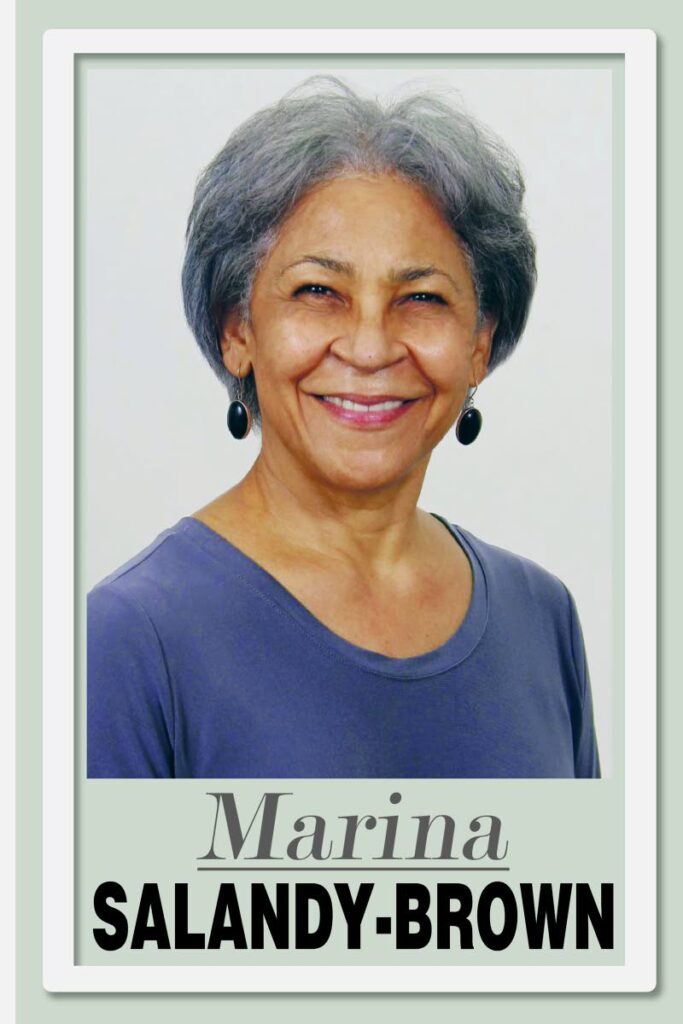On naming and name-calling

The unseemly race-tinted baiting between two very senior women – one a former prime minister and the other a serving minister – of the two prominent political parties of this country only adds to the general sense that TT is sliding irresistibly into a morass from which there will be no escape.
On the face of it, the name-calling may appear petty, but it is not without consequences.
We all know about chaos theory, that every action, every breath of air stirs a blade of grass somewhere, even far away, and has an effect, either negative or positive. We also are aware that once we name something we grant it life, acknowledge its existence and make it everyday, familiar. That’s why in countries where violent racialism exists there are laws against using racially motivated name-calling and verbally degrading others based on their ethnic origins.
In The Divine Within, Aldous Huxley’s book of essays written after his seminal Brave New World, the philosopher/writer warns about confusing the words for things with their substantial meaning and about the dangers of misusing language, underestimating its power: “Words are simply the signs of things. But many people treat things as though they were the signs and illustrations of words. When they see a thing, they immediately think of it as just being an illustration of a verbal category, which is absolutely fatal because this is not the case. And yet we cannot do without words. The whole of life is, after all, a process of walking on a tightrope. If you do not fall one way you fall the other, and each is equally bad.”
And not least in politics. Critical-discourse theorists also believe that the appropriate use of language is integral to maintaining a position of dominance in a community. Therefore, politicians need wisdom with language, as with much else, and we should pay attention.
It is instructive how Ukraine's besieged President Zelensky uses language carefully and to great effect, tempering criticism of his Russian archenemy, President Putin. It is also noticeable how the Ukrainian leader and international reporters desist from conclusively naming any of the seeming Russian war crimes as such, describing them as “possible” war crimes and genocide.
It made me wonder why there was such hesitation. I found the answer in East West Street, by Philippe Sands, QC, a leading British human-rights lawyer and academic. The book is an unforgettable account of the legal background to the famous Nuremberg trials that followed WWII, and opened up the possibility that leaders of countries could be tried internationally for crimes against their people.
Not included in Sands’s story, however, is the role of TT’s ex-PM and President ANR Robinson, who with former fellow Oxford student Robert Woetzel, in 1972 started the Foundation for the Establishment of an International Criminal Court (ICC).
Then, in 1989 as the Berlin Wall crumbled, Robinson tabled a motion at the UN general assembly for such a court to be set up, which was accepted, although negotiations started only in 1998 and it was finally established in the Netherlands in 2002.
Yet it was at Nuremberg that today’s concepts of “crimes against humanity,” ie, crimes against an individual, and “genocide” – crimes against a group – were introduced.
Published in 2016, East West Street is a fine personal investigation into the author’s Jewish family, some of whom lived in Lviv in Ukraine and disappeared in Hitler’s historical extermination of “others.” It leads to a unique literary, legal whodunit.
Ironically and almost symbolically, Lviv, once in Poland and also Russia, was the student home of two important legal minds, both Jewish and just three years apart in age, who later battled, though not together, to ensure international law would protect people from mass killing in the future by including legal definitions in the Nuremberg statute.
For Hersch Lauterpacht it was all about the individual – protecting inalienable rights that could be enforced against the State. For Raphael Lemkin, the important thing was the group – members of a minority group who are persecuted for belonging to that group – should necessitate recognition and protection of the group.
Sands claims that Lauterpacht was the finest international legal mind of the 20th century and father of the modern human-rights movement. His concept was certainly easier to prosecute, since Lemkin’s “genocide,” which he coined in 1943 from the Greek genos (race or tribe) and the Latin-based "-cide" (killing), is harder to prove, because “documentation” is usually lacking.
I recommend the book for greater details, but former leaders of Rwanda, Serbia, Sudan, Cote d’Ivoire, Liberia and others have been successfully tried for genocide and crimes against humanity.
This column does not suggest TT will descend into the barbarity other countries have experienced, but it takes little for people to behave badly and even less for tribalism and hatred to overwhelm reason and humanity. Forging our nation is still a work in progress and being mindful of the sorts of foundations we lay would be very wise.
Editor's note: This column was corrected on June 13 to remove an erroneous reference to a lormer leader being tried before the ICC.


Comments
"On naming and name-calling"